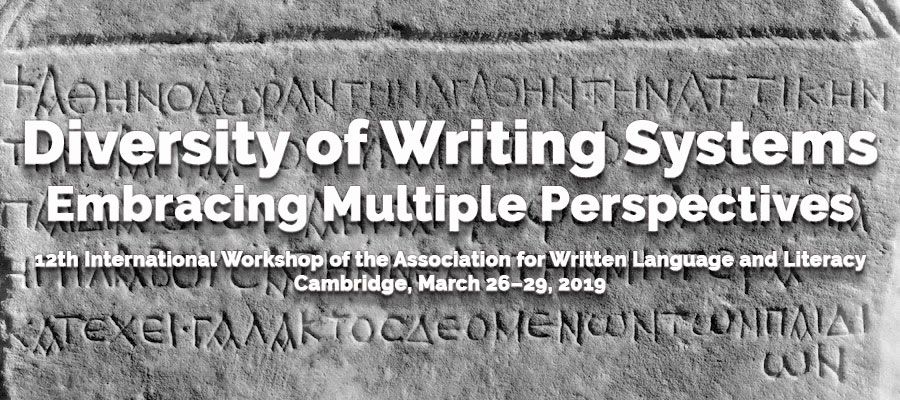Diversity of Writing Systems: Embracing Multiple Perspectives, 12th International Workshop of the Association for Written Language and Literacy, Cambridge, March 26–29, 2019
The Association of Written Language and Literacy’s twelfth gathering (AWLL12), organized in conjunction with the Faculty of Classics, University of Cambridge, will focus on the wealth of diversity within the world’s historical and contemporary writing systems. The conference sets out to offer an opportunity for exchange between a wide range of scholars interested in writing systems and written language, in order to foster greater mutual understanding of their multiple perspectives on the typological, structural, historical, sociocultural, technological, and individual variety present within writing systems. Abstracts are therefore welcome from researchers working on reading and writing within any academic discipline, including, but not limited to, linguistics, psychology, archaeology, sociology, education and literacy, technology, digital humanities, and computer science. PhD students and early-career researchers are also especially encouraged to apply.
Key issues to be addressed include:
- What fundamental principles underlie the structure and function of the world’s historical and contemporary writing systems? Is a single unified typology of writing systems possible or are separate taxonomies preferable?
- What linguistic and psychological processes are at work in the adaptation of one writing system to another? How are these affected by the cultural and social context of the adaptation?
- What linguistic, psychological, cultural and social, and technological factors bring about diversity within writing systems? How do such factors influence literacy acquisition and shape the use of writing?
- How can studying the development of historical writing systems enhance our understanding of contemporary writing systems? How can contemporary research on reading and writing contribute to the study of historical writing systems?
- How are the world’s writing systems likely to develop in the future? What principles should guide orthography development for as yet unwritten languages?
The 2.5-day programme will include two keynote lectures, a symposium focusing on research into ancient Mediterranean and Chinese writing systems at Cambridge, oral and poster presentations, and a panel discussion.
